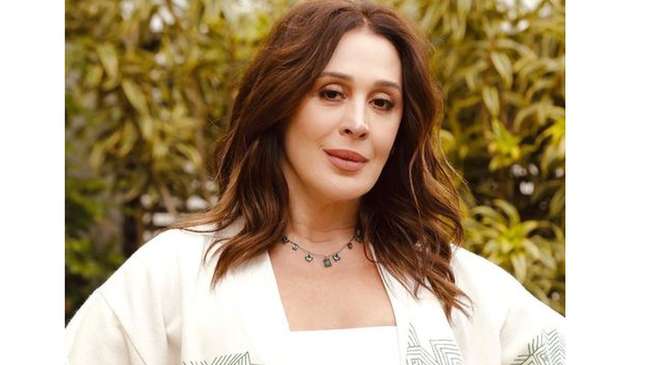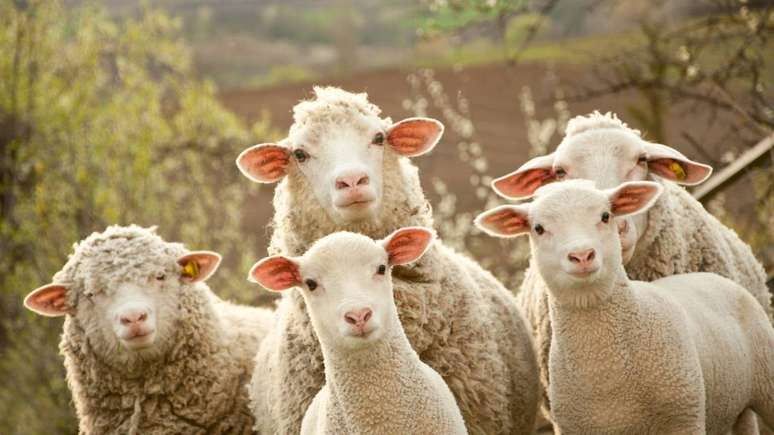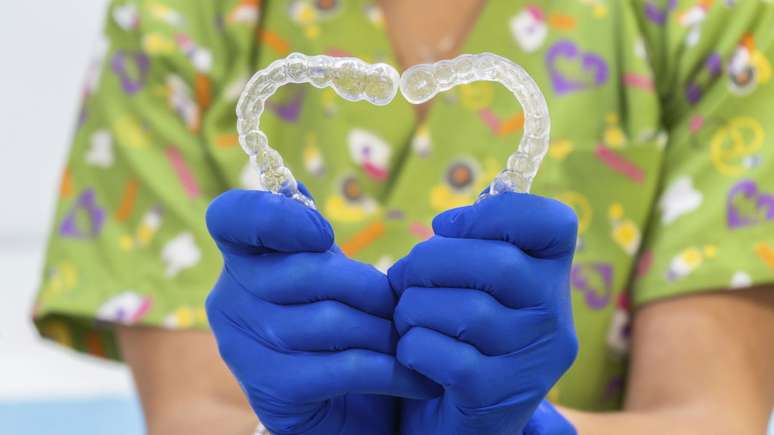Experts consider the possibility of getting pregnant in menopause practically nothing.

Actress Claudia Raia, 55, has announced that she is pregnant with her third child. Together with her husband, also actor and singer Jarbas Homem de Mello, 53, she shared a video on Instagram giving the news to fans and explaining that the pregnancy was a surprise.
In content shared on the social network, she says she was suspicious when her doctor asked her about tests to confirm pregnancy.
“When the doctor asked me for a beta, a pregnancy blood test. I said, ‘love, you’re really crazy. Where did you get this from? I’m 55’. Then he said, ‘but I need to investigate why all your rates are different, they are weird, “said the actress.
The test result showed that she was already pregnant for more than three weeks.
But why did the announcement of a pregnancy at the age of 55 surprise so many people?
According to gynecologist and obstetrician Caio Parente Barbosa, the chances of a pregnancy occurring naturally after menopause are almost nil.
This is because in the period of menopause, which occurs between 45 and 55 years, the ovaries break and estrogen and progesterone, female hormones, fall irreversibly.
The woman produces a limited number of eggs which decrease over the course of her life – and without adequate hormone production, pregnancy becomes practically impractical.
“Nothing is impossible, but all the pregnancies that I have followed in my clinical practice within this age group had or had frozen eggs. [de uma época em que a mulher era mais jovem], or with eggs donated by another woman of childbearing age. After 43 years, even in fertilization treatments, the chances of pregnancy are around 5% “, explains the doctor, who is part of the Ideia Fértil de Reproduction Humana Institute and is pro-rector of postgraduate studies, research and innovation at ABC School of Medicine.

What are the risks of late pregnancy?
In eggs from women over the age of 40, which are considered to be of lower quality, there is a higher risk of spontaneous abortion.
Additionally, the baby is also at increased risk for fetal malformations, chromosomal changes that result in genetic syndromes such as Down syndrome, premature birth, and intrauterine growth retardation (which causes the baby to be born smaller than it should).
But if the woman uses a younger egg, the risks decrease significantly. “There is an increased alert for gestational diabetes and hypertension in the mother, but nothing that good prenatal care cannot overcome,” explains Barbosa.
“More serious maternal complications, such as bleeding and the need for hospitalization in intensive care, are rare, but increase proportionally with maternal age (over 40 or 45 years),” says obstetrician Marcelo Luís Nomura, specialist in high-risk pregnancy at Vera Cruz hospital.
According to Nomura, although maternal age is a relevant factor in considering high-risk pregnancy, the health condition of the mother and the presence of previous conditions such as hypertension and diabetes are factors that should be discussed with the doctor when planning a pregnancy. late.
“Certain maternal diseases present before pregnancy can greatly increase the risk of serious complications.”
Man’s age also matters. Those who become parents after age 35 have a higher risk of having premature babies. Also, with each passing year, there are fewer and lower quality sperms, which can make pregnancy attempts difficult.
– This text was originally published in https://www.bbc.com/portuguese/geral-62972107
+The best content in your email for free. Choose your favorite Earth Newsletter. Click here!
Source: Terra
Benjamin Smith is a fashion journalist and author at Gossipify, known for his coverage of the latest fashion trends and industry insights. He writes about clothing, shoes, accessories, and runway shows, providing in-depth analysis and unique perspectives. He’s respected for his ability to spot emerging designers and trends, and for providing practical fashion advice to readers.







![Un Si Grand Soleil preview: Monday, November 3, 2025 episode recap [SPOILERS] Un Si Grand Soleil preview: Monday, November 3, 2025 episode recap [SPOILERS]](https://fr.web.img3.acsta.net/img/17/57/1757f0d448751fda890a362e1b46194e.jpg)
